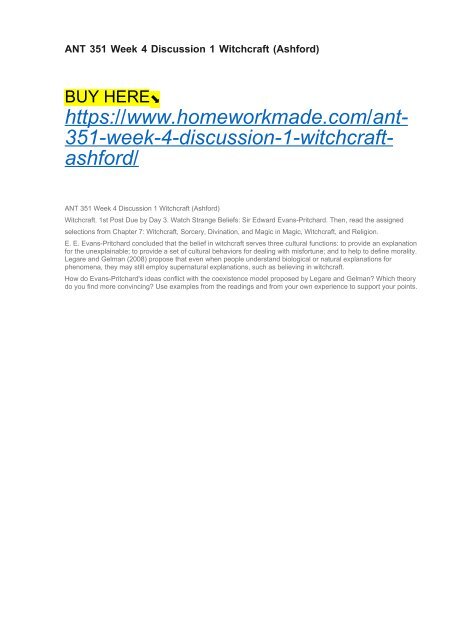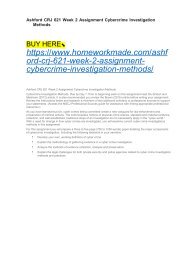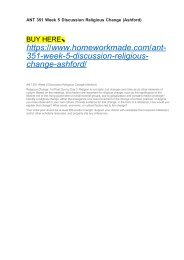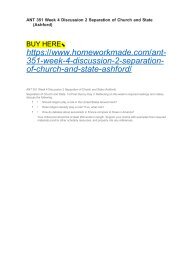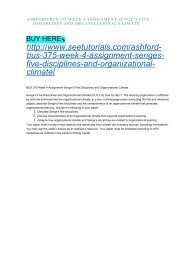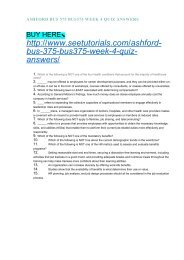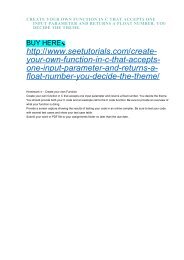Create successful ePaper yourself
Turn your PDF publications into a flip-book with our unique Google optimized e-Paper software.
<strong>ANT</strong> <strong>351</strong> <strong>Week</strong> 4 <strong>Discussion</strong> 1 <strong>Witchcraft</strong> (<strong>Ashford</strong>)<br />
BUY HERE⬊<br />
https://www.homeworkmade.com/ant-<br />
<strong>351</strong>-week-4-discussion-1-witchcraftashford/<br />
<strong>ANT</strong> <strong>351</strong> <strong>Week</strong> 4 <strong>Discussion</strong> 1 <strong>Witchcraft</strong> (<strong>Ashford</strong>)<br />
<strong>Witchcraft</strong>. 1st Post Due by Day 3. Watch Strange Beliefs: Sir Edward Evans-Pritchard. Then, read the assigned<br />
selections from Chapter 7: <strong>Witchcraft</strong>, Sorcery, Divination, and Magic in Magic, <strong>Witchcraft</strong>, and Religion.<br />
E. E. Evans-Pritchard concluded that the belief in witchcraft serves three cultural functions: to provide an explanation<br />
for the unexplainable; to provide a set of cultural behaviors for dealing with misfortune; and to help to define morality.<br />
Legare and Gelman (2008) propose that even when people understand biological or natural explanations for<br />
phenomena, they may still employ supernatural explanations, such as believing in witchcraft.<br />
How do Evans-Pritchard's ideas conflict with the coexistence model proposed by Legare and Gelman? Which theory<br />
do you find more convincing? Use examples from the readings and from your own experience to support your points.


